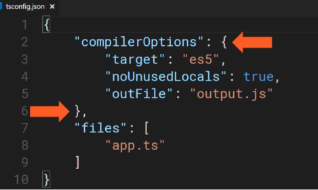Animations
API
Arrays
- Array Methods
- Array Add Using length()
- Array Properties
- Basics
- Get values examples
- concat()
- destructuring
- fill()
- filter()
- find()
- foreach()
- includes()
- indexOf()
- isArray()
- join()
- map()
- pop()
- push()
- reduce()
- reverse()
- shift()
- slice()
- some()
- sort()
- splice()
- Spread
- toString()
- valueOf()
Async
Basics
- Basics
- Best Practices
- Break Reference Label
- Common DOM Properties
- Constructor Property
- Defer
- Escape Characters
- Keywords
- Operators
- Regions
- Scopes
- Ternary Operator
- Truthy & Falsy
- Value Of
- VS Code
Challenges
Classes
Console
Dates
- Date Formats
- Date Get Methods
- Date Methods
- Date Set Methods
- Instantiating New Date
- Time Zones
- Converting UTC to Local
Debugging
DOM Elements
DOM Methods
- common methods
- document ready
- getElementByClassName()
- getElementById()
- getElementByTagName()
- querySelectorAll()
- setAttribute()
DOM Properties
Event Listeners
- addEventListener
- addEventListener to multiple tags
- onchange
- onclick
- Events
- onmouseover - onmouseout
- onmouseup - onmousedown
- onclick vs click
- onblur - onfocus
- onload
- onunload
- preventDefault
Flow Control
Forms
Functions
- Anonymous Functions
- Arguments
- Arrow Functions
- Functions are objects
- Function Expressions
- "IIFE" Functions
- Invoking vs Calling
- Reference Example
- Recursive vs Non Recursive
- Scope of Arrow Functions
- Self Invoking Functions
Global Functions
- Boolean()
- Common Global Functions
- encodeUri() - decodeUri()
- eval()
- IsNan()
- Number()
- parseFloat()
- parseInt()
- Type conversions
JSON
Keywords
Libraries (3rd party)
Math
Modules
Objects
- Adding / Deleting Object Properties
- Assign (cloning)
- Built In Constructors
- Creating a new Object
- Comparing Objects
- Constructors
- Delete A Property
- Destructuring and Spreading
- Functions in Objects
- Looping Thru Properties
- Object Literals
- Properties
Snippets
String
- charAt() / charCodeAt()
- indexOf()
- lastIndexOf()
- length
- RegEx Basics
- RegEx Example
- RegEx Patterns
- match()
- replace()
- search()
- slice()
- split()
- String Template Literals
- substring()
- toString()
- toUpperCase() / toLowerCase()
Types
Widgets
Window Object
JavaScript - Basics
JSON is a format for storing and transporting data. JSON is often used when data is sent from a server to a web page.
JSON stands for JavaScript Object Notation. Simply put, JSON files are just a collection of key : value pairs.
The key is a string and the value can be a simple data type, or another list or object.
Objects in JSON are surrounded by curly braces:

The JSON format evaluates to multiple JavaScript Objects.
The JSON format is almost syntactically identical to the code for creating JavaScript objects. For example, here's how we create an object called "person":var person = {firstName:"John", lastName:"Doe", age:50, eyeColor:"blue"};
With a JSON Object, we are essentially creating an ARRAY of person objects and calling it PERSONS.
{
"persons":
[
{"firstName":"John", "lastName":"Doe", age:50, eyeColor:"blue"},
{"firstName":"Anna","lastName":"Smith", age:40, eyeColor:"blue"},
{"firstName":"Peter", "lastName":"Jones", age:30, eyeColor:"blue"}
]
}
JSON Syntax Rules:
- Data is in name/value pairs
- Data is separated by commas
- Curly braces hold objects
- Square brackets hold arrays
- JSON names/attributes/properties (firstName) require double quotes. JavaScript object names/attributes/properties do not.
- a JSON Object can just be an single object or it can be an array of objects.
See the difference?
//object
var person = { firstName:"John", lastName:"Doe", age:50, eyeColor:"blue" };
//json object
{
"persons":
[
{ "firstName":"John", "lastName":"Doe", age:50, eyeColor:"blue" },
{ "firstName":"John", "lastName":"Doe", age:50, eyeColor:"blue" }
]
}